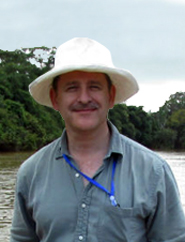CDC Responds to the 2014 Ebola Outbreak
About CDC
As CDC experts work 24/7 in response to the Ebola Outbreak in West Africa, they support the response in many different capacities. In an effort to get the worst Ebola outbreak in history under control, CDC is not only providing guidance to healthcare professionals but traveling back to West Africa to focus on stopping the spread of the disease.
CDC Responders
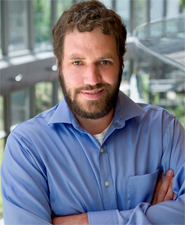
When Ebola began to spread in Liberia, Ben’s background in education and prior Peace Corps experience were much-needed skills. He deployed in July and served on the ground as a health communications specialist.
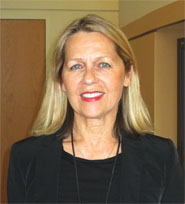
Like many of the CDC staff working on the Ebola outbreak, Dominique is no stranger to stepping up during public health emergencies. When she travelled to West Africa in early July, it marked her fourth deployment with CDC, with three prior deployments to Haiti.
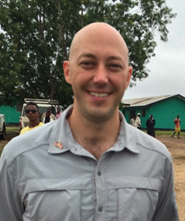
CDC Disease detective Erik is one of many Epidemic Intelligence Service (EIS) officers who have recently deployed to West Africa. He was prepared for the poor infrastructure, underdeveloped medical systems and even bucket showers. But the emotional impact has been unparalleled for many staffers, including Erik.
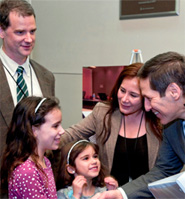
Husband and wife Fred and Fatima volunteered for the Ebola response and served in Sierra Leone and Guinea.
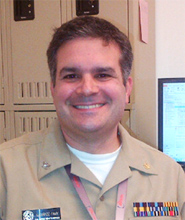
Francisco serves as the Chief of Science for the Global Migration Task Force, which is part of the Division of Global Migration and Quarantine. He and his team within the EOC develop protocols that reduce the risk of travelers with Ebola from entering the United States, or from leaving the country where they were infected.
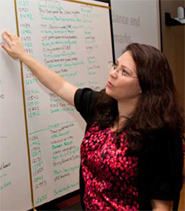
Gabrielle stands in front of a whiteboard that displays the projects the Global Migration Task Force has been assigned and completed.
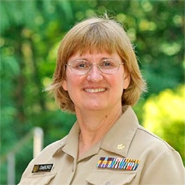
Gayle’s work as a Safety Officer ensured safety and security for CDC employees deployed to Liberia to fight Ebola.
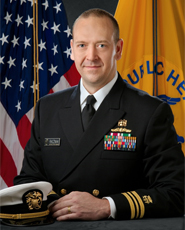 Greg is no stranger to risk. Originally trained as a Navy diver, he is now a CDC detective and an officer in the US Public Health Service. He has worked on several potentially dangerous diseases, including Leishmaniasis, H1N1 influenza, MRSA, and Rocky Mountain spotted fever. So when the call came to be deployed to West Africa for the Ebola outbreak, he wasn’t concerned.
Greg is no stranger to risk. Originally trained as a Navy diver, he is now a CDC detective and an officer in the US Public Health Service. He has worked on several potentially dangerous diseases, including Leishmaniasis, H1N1 influenza, MRSA, and Rocky Mountain spotted fever. So when the call came to be deployed to West Africa for the Ebola outbreak, he wasn’t concerned.
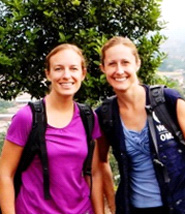
Hedi and Lindsey are part of the infection control program which trains frontline healthworker in handwashing, triaging patients, putting on protective equipment and cleaning up contaminated fluids.
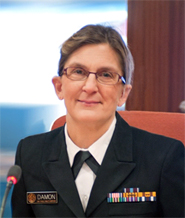
Captain Inger Damon, M.D., Ph.D., was named Incident Manager to head the Ebola response at CDC’s Emergency Operations Center (EOC) on July 30th.
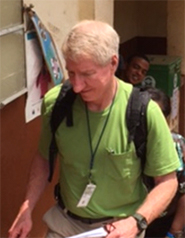
Jeff reflects on his work to fight Ebola: “Screeners play a vital role in making sure that we achieve zero new cases”.
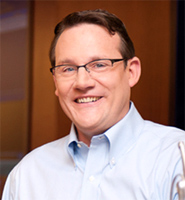
Dr. John Brooks was the lead of CDC’s Ebola Medical Care Task Force in September – October 2014 and March 2015.
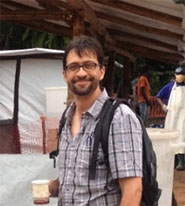
Jose and his team traveled into the wilderness and worked with village chiefs and trusted community members to identify Ebola cases.
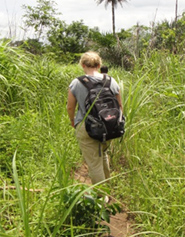
Kari is just back from West Africa on a CDC team, where she worked to track down people exposed to one of the world’s most feared pathogens: Ebola virus.
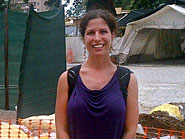
CDC disease detective Kelsey recently traveled to villages in the remote region that borders Guinea, Sierra Leone, and Liberia – the epicenter of the ongoing Ebola outbreak. She helped train community health workers to trace people exposed to Ebola patients, but says she learned more than she taught.
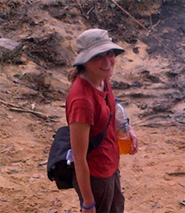
CDC deployed Kim to Liberia for just this kind of job. Her mission: to rapidly investigate possible Ebola outbreaks in hard-to-reach places. If she saw cases of Ebola, her team would quickly start active case finding and contact tracing to limit spread of the disease.
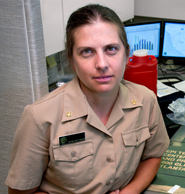
During her previous deployment several months ago, Ebola seemed to be quieting down in the remote part of Liberia where Leisha was posted. There were no new cases in the month she was there, so she and her colleagues got to work, trying to educate people to recognize new cases and prevent spread.
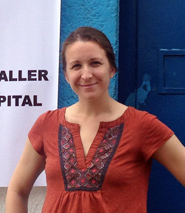
Meredith, a CDC disease detective and experienced international traveler, has already completed two month-long postings to West Africa. She was there last spring, when the Ebola outbreak seemed to be winding down – and went back this summer as the outbreak exploded anew. She has seen first-hand what Ebola has done to patients, families, and caregivers.
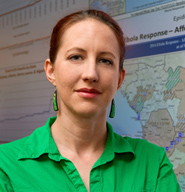
Molly is a health communications specialist for CDC, and this week she deployed in support of the Ebola outbreak.
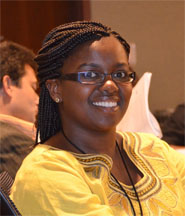
Monique, a CDC health communications specialist, is excited to deploy in support of the Ebola outbreak in West Africa.
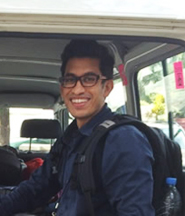
CDC Disease Detective Neil recently returned from a month working in Liberia, during which time he was based in Bomi County.
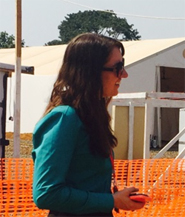
Visiting the slums of Sierra Leone, where the life expectancy is just 35, was an eye-opening experience for 31-year-old Nicole. She’s one of CDC’s communications experts trying to stop the spread of the virus in Sierra Leone’s densely populated cities.
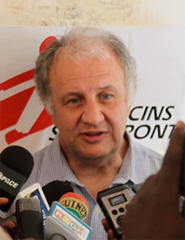
Pierre Rollin is the most experienced Ebola virus hunter at the Centers for Disease Control and Prevention. He first encountered Ebola at CDC in 1995 in Kikwit, Democratic Republic of Congo, and has been on the forefront of CDC’s response to every outbreak since.
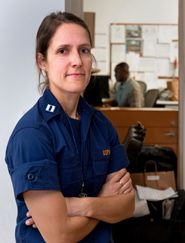
Rebecca is a CDC disease detective and the mother of two young boys, and she is deploying this week to West Africa in support of the ongoing Ebola outbreak. A health communicator who will be working in the field to improve health messaging at the community level, Rebecca is determined to make these 30 days count.
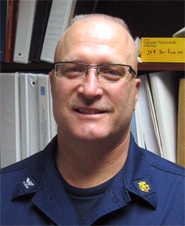
Ron’s commitment to workplace safety and health was renewed while preparing hospitals at the frontlines of the Ebola outbreak.
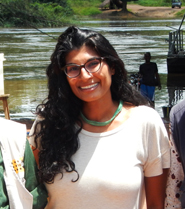
It was along this river bank that Rupa, a CDC disease detective, found herself training Guinean medical workers who were screening river passengers for symptoms of Ebola.
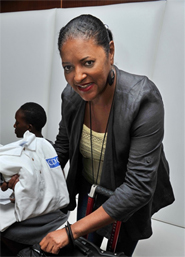
Ruth is a senior health communications specialist in CDC’s Center for Global Health. She has been working with foreign governments on various public health messages for more than thirty years. Her job has taken her to Senegal, Ethiopia, Tanzania, Kenya, Nigeria, Ghana and South Africa.
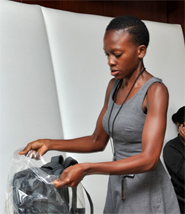
Dr. Ruth’s primary role as an Epidemic Surveillance Intelligence officer in Sierra Leone will be to support surveillance, data management and contact tracing. But she will rely on her familiarity with African customs while interacting with locals.
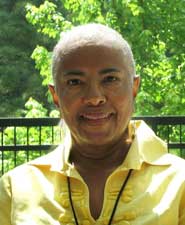
CDC Sends One Thousand Employees to West Africa as Part of Historic Ebola Response.
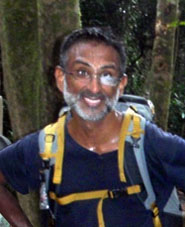
CDC’s medical officer Satish is part of an RITE (Rapid Isolation and Treatment of Ebola) Team, mobilized to respond to suspected cases of Ebola in remote villages and towns in Liberia.
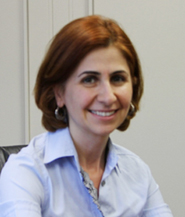
Scientists on the home front in the United States are working hard to ensure the greatest possible protection for Ebola responders in West Africa.
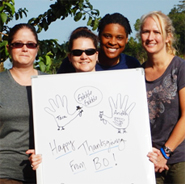
CDC’s Bo Lab Team 5 responds to the Ebola outbreak in West Africa, completing rapid ebola testing in record numbers.
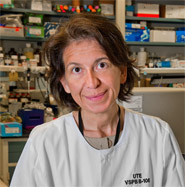
CDC mobile labs equipped with real-time polymerase chain reaction (RT-PCR) equipment already are being set up next to West African Ebola treatment centers. And Ute, a CDC expert, heads up the teams going with them.


